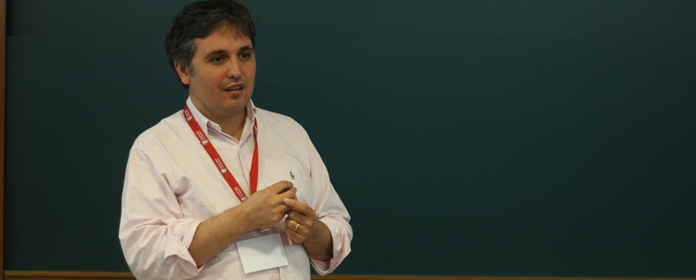Increasing by four months the maternity leave increases by 5% the probability that children will successfully complete their Education secondary education.
Pedro Carneiro, from University College London, presented a research at the IV Development Week of the Navarra Center for International Development.

Four additional months of maternity leave have a large effect on the Education and the income of children as adults. This effect is especially B among the most disadvantaged families: there is a 5% reduction in early school withdrawal and an 8% increase in average income.
This was stated by Pedro Carneiro, of University College London, who spoke at the IV Development Week of the Navarra Center for International Development of the University of Navarra.
For research , Norwegian children born one month apart were compared: those born on June 1 and those born on July 1, 1977. On the latter date the country passed a new maternity leave law, giving mothers four months paid and twelve months unpaid maternity leave.
Professor Carneiro pointed out, however, that the effect need not improve indefinitely if "more and more months" are added to maternity leave. Thus, he commented that a similar study was carried out in Germany and the effects were hardly noticeable "because the starting point was already good".
He stressed that the children who benefited most from these measures were those from the most disadvantaged families, who had to return earlier to work due to economic needs. "Even so, this is only one aspect of many. Health, Education and many other things also affect," he stressed.
The importance of the first five years in a person's developmentProfessor Carneiro insisted on the importance of early childhood (between the first and fifth year of life) for a person's development later life, both in terms of intelligence or abilities and their future social behavior, tendency to violent behavior or the development of abilities such as constancy, emotional management or patience. "Taking into account the weight of our past experiences, early childhood constitutes the foundation or cornerstone of our life," he stressed.
Under this premise, he emphasized the possible negative consequences for a child to spend this stage of his or her development in an environment marked by shortages, poor nutrition, social exclusion or situations of domestic violence.
To avoid such consequences, he highlighted the benefits of family support programs through a system of home visits by social educators, even before the birth of the baby. These measures, as he explained, have been successfully implemented in countries such as Jamaica, Colombia or the U.S.A. He also mentioned other proposals such as guaranteeing paternity and maternity courses for people in a community.
Carneiro recalled the importance of parents and the family environment in the Education and development of children, especially in "life skills", beyond academic results.
With regard to the role of schools, he pointed out that they can also collaborate with the work of parents through initiatives such as mentoring programs, in which mentors work with children to help them acquire skills that in the future "will be fundamental for their professional and social life". Education .
Pedro Carneiro made these statements at the framework of the fourth edition of Development Week, a congress on Economics of development organized annually by NCID. This group of research belonging to Institute for Culture and Society (ICS) of the University of Navarra seeks scientific solutions -viable and sustainable- to situations of extreme poverty in countries in Africa, Asia and Latin America. To achieve this, it focuses on three lines: the quality of public and private institutions in each nation, technology transfer and migration.
